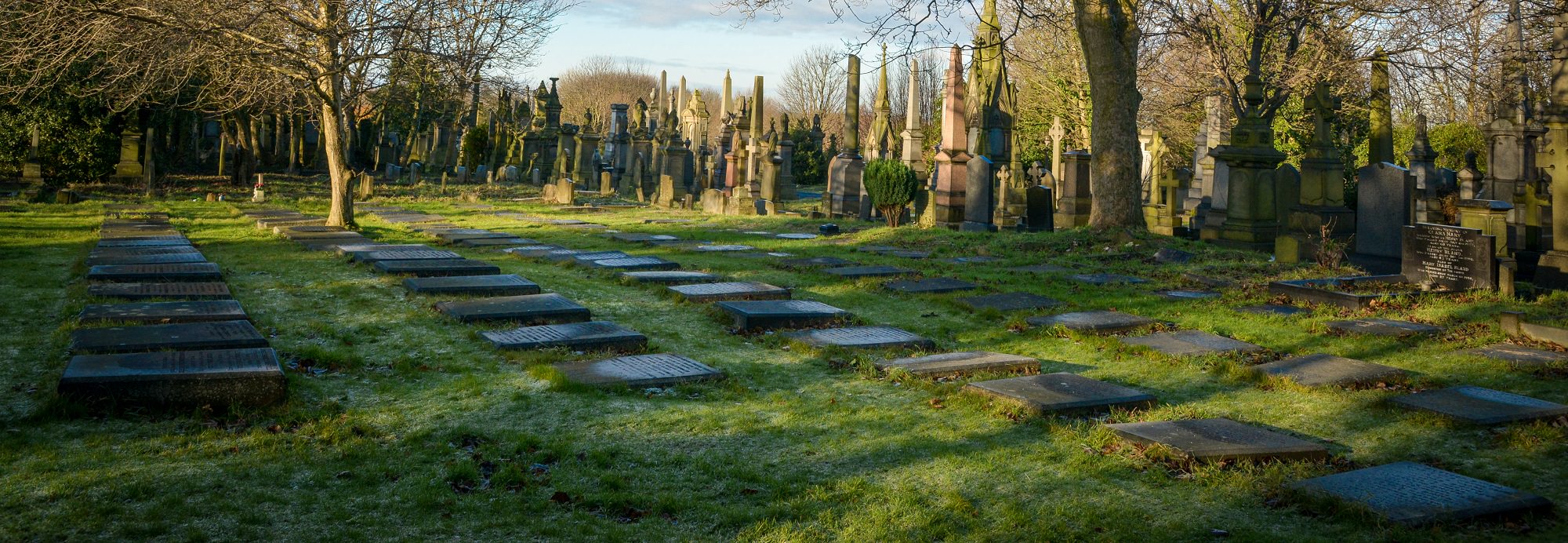Thomas Parkinson Muff
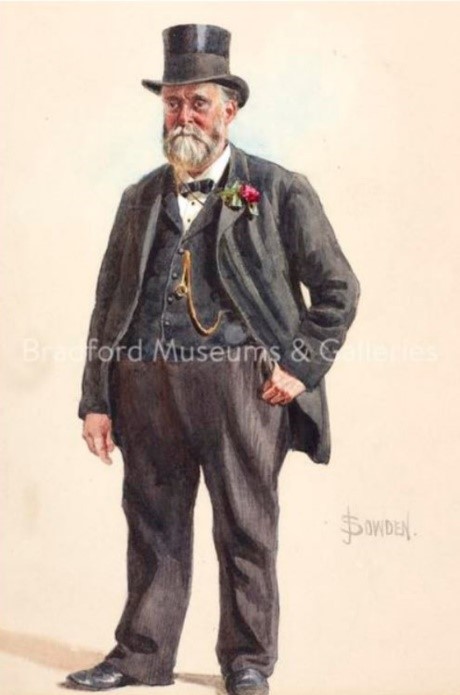
Thomas Parkinson Muff was the son of William Muff and Alice Holdsworth. He was born in Bradford on the 12th April 1821. His father was a Cabinet maker, joiner and timber merchant of Manor Place, Bradford.
The 1841 census shows Thomas ‘Living in’ with Henry Brown and his wife Betsy, she was Thomas’s sister. Six other ‘Shopmen’ were also Living in at Henry’s house in Melbourne Place, off Little Horton Lane. This was a newly constructed property at the end of Melbourne Place, at the time overlooking fields, and very likely including a stables at the rear of the property. The Shopmen were all young men between the ages of 14 to 25. There was also an ‘Assistant’, James Calvert aged 17. The distinction between ‘Shopmen’ and ‘Assistant’ is not clear but it could mean that Calvert was serving as an apprentice and had in place a legally binding Indenture.
By this time Henry had taken over his mother’s drapery business which had been established in 1814. The ‘Living in’ system was common during the 19th century with shop workers lodging with their Masters. In fact in many cases the terms and conditions of employment included the requirement to live in. This meant that the Master, in this case Henry Brown, could keep an eye on his employees, almost 24 hours a day. Essentially the Master provided food and lodgings. Those living in would have had a set of house rules. How else would they keep all these youngsters in check! We don’t know what Henry Brown’s house rules were and later when Thomas Muff became a Master what his rules were, but some Masters had very strict rules both in the house and in the shop itself.
PC Hoffman in his book The Story of the Shop Worker gives an example of house rules from a shop in London.
1) The house door is closed at 11pm, Saturday at 12 pm. The gas light will be turned out fifteen minutes later
2) Assistants sleeping out without permission will be cautioned twice and discharged at the third offence.
3) The bedrooms must be left tidy. No pictures, photos etc. allowed to disfigure the walls. Anyone doing so will be charged for the repairs.
4) No assistant to enter any bedroom but their own.
5) Any young lady being unwell must see the house doctor, who will be paid from the medical fund.
6) All apprentices and assistants are expected to subscribe 6d to the medical fund per month, payable in advance.
7) Hot water can only be had on Monday, Tuesday, Wednesday Thursday and Friday evenings.
In addition to the House Rules there would have been rules for the shop floor. One London firm had these rules. Employees would be fined for not following them.
• For exceeding time at meals and at time of washing hands. 2d
• A customer must not be allowed to leave the shop unserved unless the shop walker has been spoken to by the assistant, 6d
• Assistants must introduce at least two articles to each customer 2d
The typical draper’s assistant at the time would have been a smartly dressed young man. It was not thought fit for a young lady to serve as a draper’s assistant until Word War One broke out when most of the men were sent off to fight. Working long hours, ‘living in’ with your master and being controlled by the house rules left little time for socialising. As part of an Indenture it was also common for the apprentice to be prevented from getting married. There were advantages and disadvantages on both sides from the living in system and apprenticeships. One of the advantages from the apprentices point of view was that after serving his time he had the opportunity to setup business on his own, and there is evidence that James Calvert may have done that. We think we have traced him in the 1851 census as living in Wakefield Road Bradford with his wife Lydia, aged 27, occupation – Draper and Tailor.
An incident occurred early one Friday morning in September 1841 which must have left a lasting impression on both Henry Brown and Thomas Muff. A young man was walking through Melbourne Place early in the morning and saw a pile of crockery close to Henry Brown’s house. Concluding that a robbery had taken place he alarmed the inmates. “on searching the premises, it was found that thieves had affected an entrance by wrenching off the plate which covered the hole in the cellar, which place they had cleared of every eatable, including the whole baking of bread and the milk intended for the use of the family. The vessels that had contained the food, and some which had meat on them, were left outside. The thieves had not been able to gain access to the rest of the premises as the cellar door had been fastened. The only items that were missing was the food and several pairs of boots belonging to the young men.” (Brad Observer 18th Sept 1841) This was the era of the Corn Laws when the ordinary working man could not afford bread and people were starving whilst rich landowners were increasing their wealth by restricting imports and keeping corn prices high. Both Brown and Muff were not in the corn business of course but they were certainly seeing the effects of the corn laws on ordinary working people. The Bradford Observer reported 6th January 1842 that the inhabitants of Melbourne Place , Horton Lane, feeling for the distress of their poorer neighbours and desirous of doing something to relieve it, especially at this time of year, have raised a small fund for that purpose. Two or three of their number have undertaken to visit and give necessary aid to certain families who have been found peculiarly destitute. It is pleasant to see the good feelings of neighborhood, taking the charitable form, and we hope the example will not want for imitators in other parts of the town.
As mentioned earlier Thomas Muff had employees living in, in both 1851 and 1861. The 1851 census shows that Thomas was with his wife Eliza and his son, Henry, aged one, they were living at 21 Hanover Square. He was a draper employing twelve assistants. Four ‘Draper’s assistants’ and four ‘Draper’s errand boys’ plus two house servants were living with them. By 1861 Thomas and Eliza had moved to No 4 Belle Vue, Manningham, but the census shows a different son, Frederick B Muff, aged three, and that Thomas was now Draper employing twenty four assistants. Ten ‘Draper’s assistants’ were living in, along with two house servants. The whereabouts of Henry is unknown.
Thomas had married Eliza Ingham. They had two daughters Rachel Alice and Emily who died in infancy, according to the headstone at Undercliffe, they were buried at Salem Chapel as they had died before Undercliffe Cemetery was established in 1854. There was also a son Thomas William Muff who died in childhood aged 3 years and seven months. He is buried at Undercliffe Cemetery. From the first four children only Henry b1850 survived, but two more sons were born later and they managed to survive the perils of their early childhood, they were Charles James Muff b1851 and Frederick Broadbent Muff b1857.
After Henry Brown’s mother died in 1845 he made Thomas a business partner and the company Brown & Muff was formed. Henry provided the stock and the shop for which he received £100 rent each year. Thomas would gradually purchase up to half of the stock and each partner was to be regarded as a creditor of the firm, in respect of their share of the stock, receiving 5 per cent interest on it. The stock valuation in 1860 was £7,122 each. (Brown Muff Ledger 1838-77 14D96/1/8) Thomas was to ‘diligently apply himself in and about the management of the said concern’, receiving a salary of £100 a year as well as half share of the profits. Thomas Muff essentially ran the business, allowing his partner Henry Brown to focus on his wide range of charitable and educational interests as well as serving as Mayor from 1856 to 1859.
The business grew steadily, in 1845 the annual takings were £20,566 increasing to £35,338 in 1860. Henry spent £910 on improvements to the shop in 1853. In 1870 there was an opportunity for it to take a giant leap forward. The Corporation required the premises to be demolished to allow the widening and improvement of Market Street. Brown & Muff were offered the same area of land which was 711 square yards and a grand new five storey building was erected with fronts on Market Street and New Ivegate. The contrast between the old shop and the new premises was remarkable. The building still stands today and at the top of the building there is an inscription ‘Brown and Muff 1870’.
In the minutes of the Streets improvement committee in 1869 the following appeared ‘The purchase from and exchange with Henry Brown and Messrs Brown and Muff, subject to special conditions, of certain plots of land near Market Street: The Corporation paying to Mr Brown the sum of £5000 , such sum to cover all claims and demands in respect thereof including trade compensation both on behalf of Mr Brown and of Messrs Brown and Muff £5000 (BFD Observer 8th Sept 1869) It is not clear if this money was essentially compensation or that they had to buy the new plot of land from this.
The move in 1870 was a major upheaval for the company. It was decided to clear all stock from the old premises and a sale took place in February 1870 when “It was absolutely necessary, at once, LARGELY TO REDUCE and SELL OFF THE PRESENT STOCK amounting in value at stock book prices to £26,662 16 9d” (BFD Daily Telegraph 1st Feb 1870)
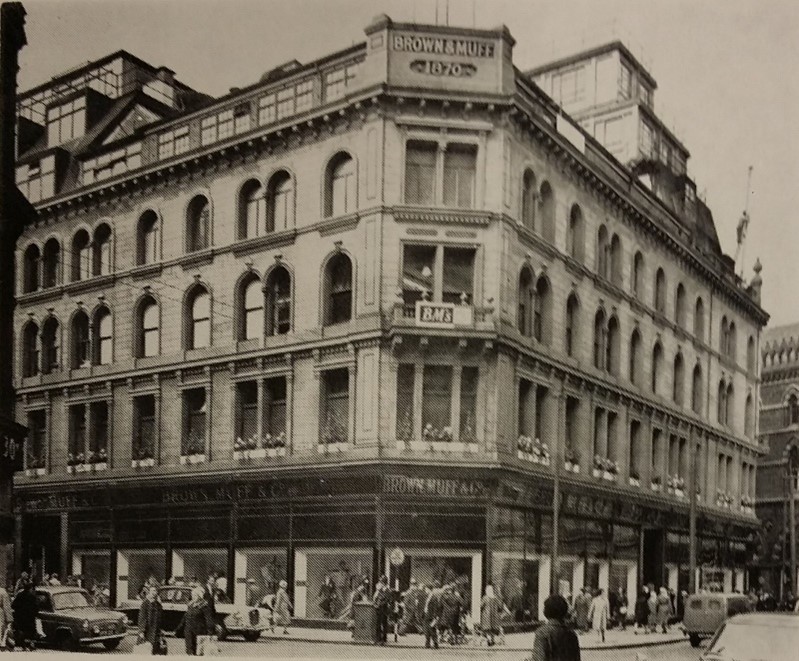
The new premises were designed by architects Messrs Knowles and Wilcock. The building had a cellar and four stories above ground including the attics. At the rear of the building there was a stable where horses were kept for the dispatch of goods. There were three main departments, clothing, drapery and carpets and furnishing.
The cellar was lighted by numerous windows and extended to the full length of the building. Sensibly it was where the heaviest goods were stored. The first floor was divided into three, readymade clothing and haberdashery, shawls and mantles, and damasks and curtains. The second floor had departments for scotch carpeting, wholesale drapery and there was a cutting room. There was also a large dining room for the staff. On the third floor was a kitchen, a tailor’s workshop, a stock room and a room for carpet sewing. The fourth floor, the attic, was the flock and feather department. There was a broad staircase connecting the floors and a hoist connected each floor and ran the entire height of the building. The revolving shutters were supplied by Mr J Stones and the electric bells by Messrs Gent & Co. Steam pipes provided the heating and foot warmers ran in front of the shop counters.
On the 30th October 1871 a notice appeared in the London Gazette stating that the partnership between Henry Brown and Thomas Parkinson Muff had been dissolved on 29th September 1871, by mutual consent. Any monies outstanding would be paid by Thomas Parkinson Muff.
Henry Brown was 67 years old and perhaps feeling the strain of the huge step they had taken in opening the new store, or because of his age it was the right time to let go. Cudworth suggests that it was advancing years that induced him to retire. (ref Historical notes) After 1871 he ceased to take any active part in the business. (BDT 26th March 1878) Thomas Parkinson Muff at 50 was a much younger man and he must have been full of enthusiasm for the new venture. Henry died in 1878.
When Thomas Parkinson Muff died in 1901 he left £165,000 (todays equivalent is £ 18m) some of the money was left to local charities :
Bradford Infirmary £200, Bradford Benevolent Fund £ 200, BFD Spinsters Endow £200, Bfd EYE and Ear £100, Ilkley Charity a Hospital and Conv home £100, Ilkley orphanage convalescent home £100, To staff share of £200.
Which other members of the family were involved in the business?
Other members of the family involved in the business were as follows:-
2nd Generation
Thomas’s son Henry Muff (1850-1910) was a senior partner in 1901. He had married Maud Alice Smithies, the granddaughter of Sir Titus Salt. Henry as well as his brothers Charles and Frederick were major shareholders in 1905
3rd generation.
Sons of Frederick and Grandsons of Thomas Parkinson Muff
Philip Broadbent Muff (1888-1975)
Joined on 1st January 1906 as a junior in the office , he retired as Chairman and Financial Director in 1960
Frederick William Broadbent Muff (1895-1980) Known as Mr Eric
Joined on 29th April 1914 he became Chairman in 1960.
Captain Thoma Harold Broadbent Muff V.C. (1898-1942)
Was appointed Director in 1927.
Sons of Charles James Muff and Grandsons of Thomas Parkinson Muff
Ernest Gordon Muff (1885-1916)
Joined firm in 1907 but was killed in action in WW1 in 1916
Carl/Charles Gordon Muff (1889-1940)
Joined firm in 1911 later becoming Director. He was responsible for the Benevolent Fund
4th Generation.
Micheal H Maufe (1916-2004) (Son of Philip, grandson of Frederick snr)
Joined on 17th April 1939, was made director on 6th February 1950 and promoted to Deputy Managing Director
Ambrose G Maufe (1927-) (Son of Carl/Charles)
Joined firm in 1944 and then joined the army. He rejoined the firm in 1949 and became Director in 1960.
You will notice that there had been a name change. The family had moved from Bradford to Ilkley and in 1909 the sons Henry, Charles and Frederick (snr) changed their surname to Maufe, which had apparently been an old family name.
The company continued to prosper and became a Private Limited Company in 1905. The shareholders were Henry, Charles and Frederick Muff, together with George and Richard Walker.
A beauty parlour was opened in 1927, and a chapel of rest in 1930, but the depression hit in the 1930s and a public limited company was formed in 1936
After the second world war in 1950 they opened an electrical goods store just opposite at No 55 Market Street and in 1956 they opened Howard House on the corner of Broadway and Bank Street. This served as a showroom for the electrical department and hardware and kitchen furniture departments were also moved here.
A major restructuring of the main building took place in 1958 when a food department was opened selling delicacies from around the world. Following this in 1960 the company enjoyed its best year in terms of profit and turnover.
In 1963 the company opened its first branch in High Street, Skipton and another in Bingley.
However, things took a turn for the worse in the 1970s and shareholders were advised to sell shares to Rackhams, a company owned by House of Frazer. In May 1975 they had 27.2% of ordinary shares and by 1977 they took control of the business. The company was renamed Rackhams in February 1978. In 1995 Rackhams closed down the Bradford premises.
Many Bradfordian’s have fond memories of the old Brown & Muffs and they would have been sad to see the end of an extremely successful family business, which served the public for generations.
References:
PC Hoffman’s The story of the shop worker.
Bradford Observer 18th September 1841
Census information 1841-1911
Brown Muff’s ledger 1838-1877 14D96/1/8 West Yorkshire Archives
Bradford Daily Telegraph 1st Feb 1870
Historical Notes on the Bradford Corporation by William Cudworth
The Bromuff’s story , a booklet to celebrate 150 years in business.
Ancestry
Research by Steve Lightfoot 2021
Some of the Muff/Maufe’s military history.
Grandsons of Thomas Parkinson Muff
Ernest Gordon Maufe
Private G/18238 11th Service Battalion, Royal West Kent Regiment
Killed on 6th October 1916. He had been in France for less than 40 days.

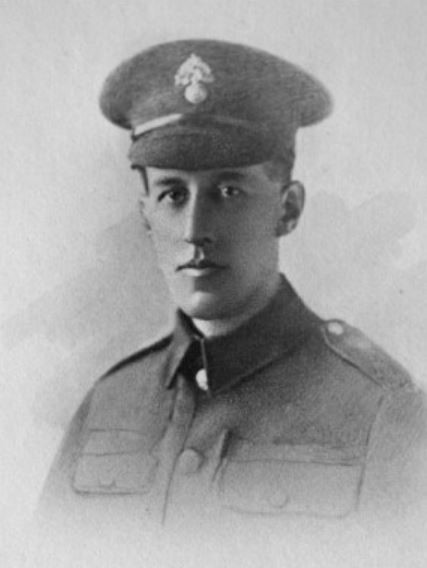

Major Thomas Harold Broadbent Maufe V.C.
Awarded the Victoria Cross. Citation reads…
‘On 4 June 1917 at Feuchy, France, Second Lieutenant Maufe, on his own initiative and under intense artillery fire repaired, unaided, the telephone wire between the forward and rear positions, thereby enabling his battery to open fire on the enemy. He also saved what could have been a disastrous occurrence by extinguishing a fire in an advanced ammunition dump caused by a heavy explosion, regardless of the risk he ran from the effects of gas shells in the dump.’ Thomas served with the home guard during WW2 and was killed in a training exercise. He was buried at Ilkley Cemetery. This stone was placed at the Ilkley War memorial site.
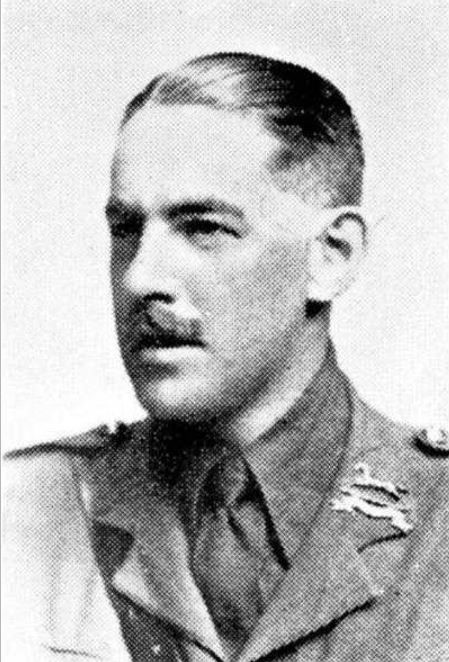
Major Stratham Broadbent Maufe
11th Battalion West Yorkshire Regiment, Mentioned in dispatches, died of wounds received at Contalmaison 5th July 1916. Aged 29. Educated at Uppingham and Claire College, Cambridge. Joined the army in 1910. Buried at Heilly Station Cemetery, Mericourt-L’Abbe
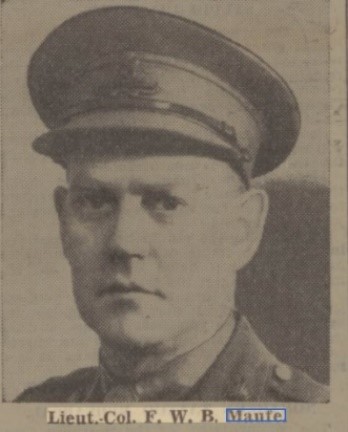
Lieutenant Colonel Frederick William Broadbent Maufe M.C. T.D.
Received his first commission less than a month before the outbreak of war in 1914 in the West Riding Howitzer brigade R.F.A. (T.) and was posted to the 11th West Riding Howitzer Battery stationed at Ilkley. He went to France in April 1915 with the 4th West Riding Ammunition Column but soon afterwards was transferred to the 11th Trench Mortar Battery. After being wounded in August 1915 he returned to France in November to join the 10th West Riding Battery. He was mentioned in dispatches in May 1917 and was wounded again in November. He was awarded the Military Cross with bar in January 1918, and after the war, with the Ilkley Howitzer Battery became affiliated with the 69th (West Riding) Brigade Royal Artillery.
Great Grandson of Thomas Parkinson Muff
Gary Humphris Maufe M.C.
Awarded the Military Cross for his actions on 4th January 1945 at Mezzano; he was woken at 4.30 a.m. by activity near his farmhouse headquarters. A sergeant in a forward position had lost two men and needed ammunition urgently. He set off in a carrier at dawn with a driver and rifleman Thomas Vickery Walker. They killed several enemy in ditches as the carrier drove about 550 metres along a narrow track to reach the sergeant and his men. He then joined a Canadian unit and flushed out about seventy Germans who fled back to their lines. Died in 2009 aged 86.

